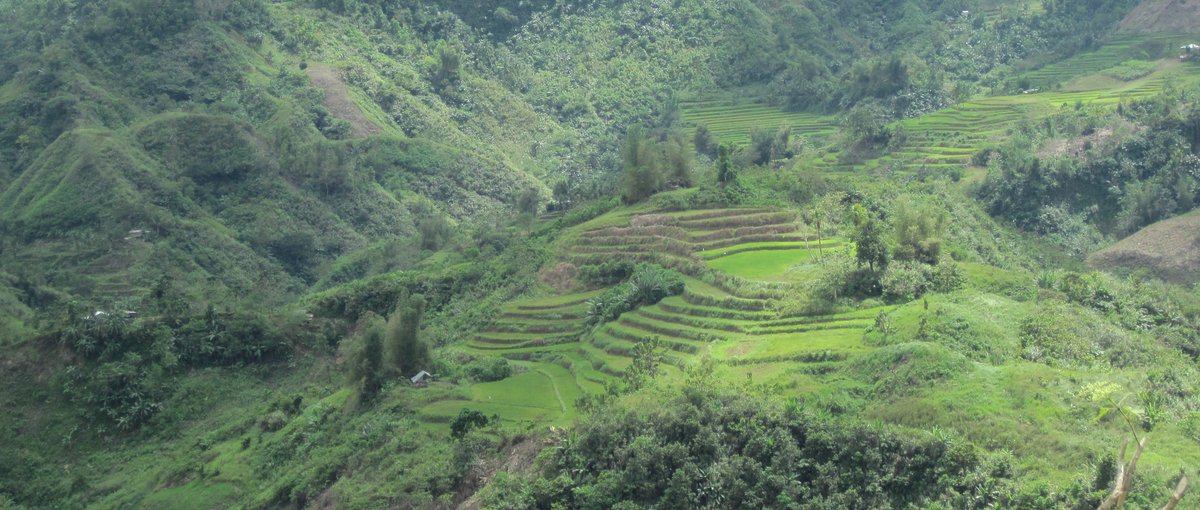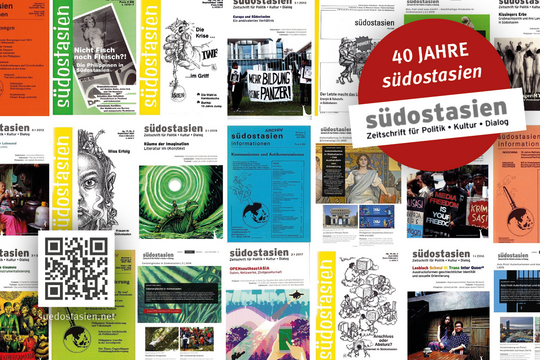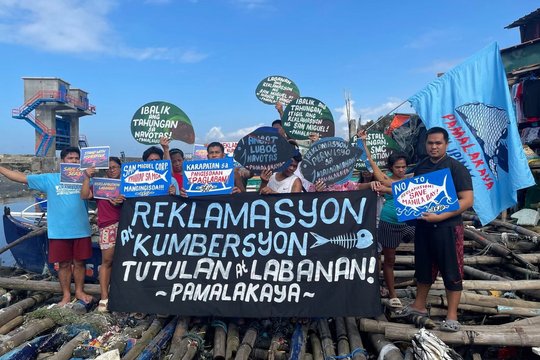The Philippines is a country rich in resources, biodiversity and species diversity, both on land and underwater. This richness is mainly found in indigenous ancestral lands, i.e. indigenous territories that have been in the hands of indigenous people for generations, shaping their communities, culture and identity.
In total, around 14 million indigenous people from 110 ethnolinguistic groups in Luzon, Visayas and Mindanao make up to 16% of the total population. Historically and to this day, they have faced numerous forms of discrimination and marginalization and have an equally long history of resistance and self-empowerment.
Despite their great wealth, indigenous communities are often among the population groups most affected by poverty. Like all other Filipino citizens, they have a right to education, healthcare and economic and political participation - but their access is limited. Forms of self-empowerment, such as the establishment of their own schools, have been increasingly suppressed by the state since the mid-2010s. Indigenous communities do have the documented right to decide freely on the development of their communities. Too often, however, they are cheated of this right and their land and resources are exploited for external interests.
Many laws have been enacted to protect nature from indigenous communities rather than corporate interests. Indigenous people are wrongly blamed for the overexploitation of forests and oceans, rather than commerce in general, which has turned nature into a commodity and creates demand for forest and marine products. It is a twisted narrative that leaves the companies unscathed and forces the indigenous population to fight for survival.
Representatives of various Filipino organizations that work closely with indigenous communities or belong to the communities themselves have contributed to this brochure. Their articles shed light on the background to marginalization and the indigenous peoples' struggles for self-determination. The philippinenbüro has compiled and coordinated the articles on behalf of the Ökumenewerk or the Ecumenical Center of the Evangelical Lutheran Church of Northern Germany (ELCNG).
The aim of this publication is to make the voices of indigenous communities in the Philippines heard in Europe and to raise awareness of the major challenges they face. The struggles for their communities, culture, spirituality and ecological balance are not to be understood in isolation, but in the context of global warming, the hunt for resources for the economy, prosperity and renewable energy, especially in the industrialized nations of Europe, the USA and East Asia.
When we discuss climate measures in Germany and Europe, it is important to uncover and end exploitative and repressive structures in the mode of colonial continuities. The insistence on “business as usual”, on constant growth in countries of the Global North, including in the context of the energy transition and the resources required for this, has existential consequences for countries of the Global South, such as the Philippines. The Philippines is one of the countries in the world most exposed to climate damage, i.e. intensifying storms, losses in agriculture, rising sea levels, etc. Already marginalized groups, such as indigenous communities in the Philippines, bear the brunt of this without having a measurable share in causing the climate crisis.
If economic relations and free trade agreements with the Philippines are negotiated in Germany and Europe, in particular to “secure critical raw materials” such as nickel and copper for the expansion of renewable energies, this must not lead to the perpetuation of injustice, further human rights violations and the destruction of indigenous communities. Instead, the protection of the rights of indigenous communities must have the highest priority and their participation must be ensured at all levels. Political answers must be found that go beyond the “business-as-usual” approach.
Therefore, both in Europe and in the Philippines, civil society and politicians need people who listen to indigenous communities and stand up for their rights with them - not as a possible add-on, but as an integral part of diplomatic and, above all, economic relations. We hope that this brochure can motivate people to contribute to this.
For the philippinenbüro
Mirjam Overhoff und Hannah Wolf










